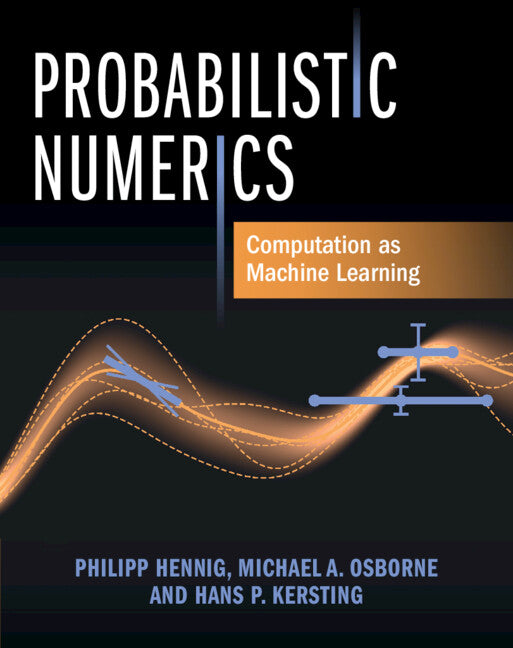Freshly Printed - allow 4 days lead
Couldn't load pickup availability
Probabilistic Numerics
Computation as Machine Learning
A thorough introduction to probabilistic numerics showing how to build more flexible, efficient, or customised algorithms for computation.
Philipp Hennig (Author), Michael A. Osborne (Author), Hans P. Kersting (Author)
9781107163447, Cambridge University Press
Hardback, published 30 June 2022
410 pages
26 x 20.8 x 2.3 cm, 1.16 kg
'The idea of applying probabilistic inference to the problem of numerical analysis must appear bold, possibly outrageous, even to an entrenched Bayesian statistician. Many in machine learning are now familiar with the application of Bayesian methods to problems that involve randomness, say, the estimation of quantities from noisy data. But to apply the 'calculus of uncertainty' to unknown mathematical facts, where the uncertainty arises only from our lack of knowledge, opens up a universe of new possibilities. This elegant idea is at the core of Probabilistic Numerics, and the authors succeed in demonstrating its potential to transform the way we think about computation itself. And that's not even considering what would happen if we were to apply probabilistic numerics to the numerical problems that arise from probabilistic numerics itself!' Thore Graepel, Senior Vice President, Altos Labs
Probabilistic numerical computation formalises the connection between machine learning and applied mathematics. Numerical algorithms approximate intractable quantities from computable ones. They estimate integrals from evaluations of the integrand, or the path of a dynamical system described by differential equations from evaluations of the vector field. In other words, they infer a latent quantity from data. This book shows that it is thus formally possible to think of computational routines as learning machines, and to use the notion of Bayesian inference to build more flexible, efficient, or customised algorithms for computation. The text caters for Masters' and PhD students, as well as postgraduate researchers in artificial intelligence, computer science, statistics, and applied mathematics. Extensive background material is provided along with a wealth of figures, worked examples, and exercises (with solutions) to develop intuition.
Introduction
1. Mathematical background
2. Integration
3. Linear algebra
4. Local optimisation
5. Global optimisation
6. Solving ordinary differential equations
7. The frontier
Solutions to exercises
References
Index.
Subject Areas: Machine learning [UYQM], Mathematical theory of computation [UYA], Algorithms & data structures [UMB], Probability & statistics [PBT], Numerical analysis [PBKS]


